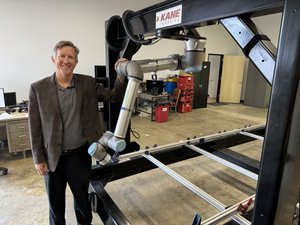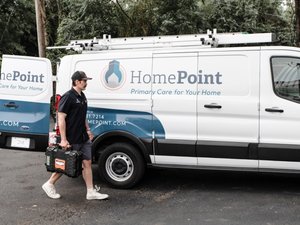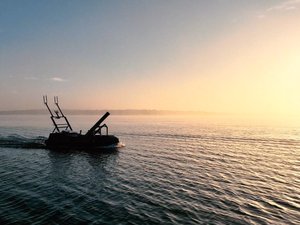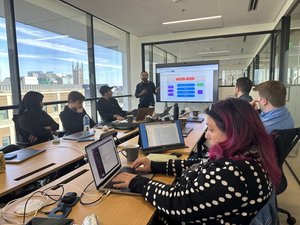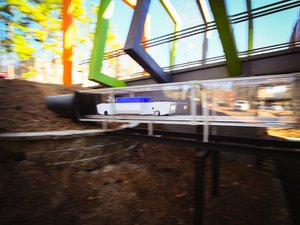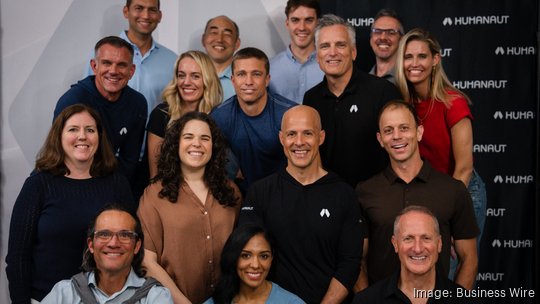
After founding and leading Austin-based cryotherapy and wellness franchise Restore Hyper Wellness, serial entrepreneur Jim Donnelly is back at it.
Donnelly and a group of co-founders with deep backgrounds in health and wellness have launched membership-based longevity clinic startup Humanaut Health and raised an $8.7 million seed round.
The funding, announced May 7, was led by a group of investors in California operating as The Kabech Fund. Also in on the round were Austin-based Midnight Venture Partners, the company's co-founders and other individual investors.
Here's how it came about: About a year and a half ago, Restore Hyper Wellness was talking about opening its 200th location after raising a $140 million growth investment from General Atlantic. Donnelly, who has started several companies, felt like he needed a new challenge and that Restore might benefit from another leader.
"I think I'm a really good founder and creator, but at some point, you wake up and now the the things that you have to do on a day-to-day basis are very different and more process-oriented," he said.
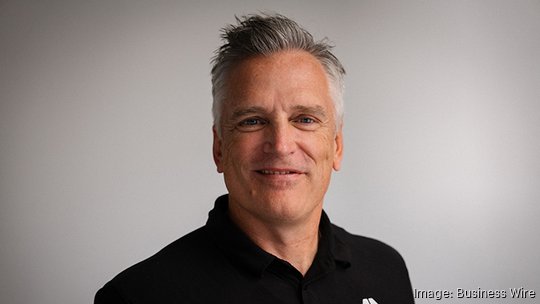
Around the same time, Donnelly's dad died after several years battling cancer. He knew he didn't want the last years of his own life to look like that, and he felt like he could do more impactful work in the health care space.
"I wanted to take things to the next level," he said. "So I traveled around the country. I went and visited hormone clinics, stem cell clinics and looked at things like ozone and all of these things that kind of feed off of your body's ability to take care of itself."
While Donnelly was getting a stem cell treatment, he met Paul Pagnato, a fellow entrepreneur who had just exited his previous business.
The two further developed the idea for a longevity clinic that would take a wholistic approach to health, largely targeted at the 40- to 60-year-old demographic, folks who are starting to experience their body's decline. They started carefully crafting a team that had experience in scaling businesses and franchising.
That led them to fellow co-founders Amy Killen, Harry Adelson, Tony Cheng, Elliot Karathanasis and Trey Owen.
Killen, the startup's chief medical officer, had experience in regenerative medicine at clinics in Utah, and she had also co-founded Reputable Health and the Human Optimization Project. Adelson had a background in naturophatic medicine and owns Docere Clinics in Utah. Cheng was the former chief data officer at Restore Hyper Wellness and founded a couple companies before that. Karathanasis had been CEO of Tregan Energy Partners, and Owen had deep experience in health through his roles as founder and CEO of United FP, the largest franchisee for Planet Fitness.
"Everyone's mission driven and has a personal narrative around why they're doing this," Donnelly said. "And that, in some cases, is a personal health thing that happened to them. And in other cases, it's someone in their close network that kind of brought them to not just wanting to do something but wanting to do something meaningful for society in the health care space."
Humanaut, which has started a waitlist and plans to open its first clinic in central Austin this fall, starts with a full panel of blood tests, body scans and fitness tests. Then it develops a health plan that might include hormone therapies and regenerative care. It continues to build on those foundational health factors with coaching and follow-up visits to track progress and make adjustments.
The startup won't, however, replace general care doctors. And if a patient's tests show something like cancer or cardiac issues, Humanaut will refer them to specialists.
Donnelly said that in its early days, Humanaut might look like a health service for the elite. But that's not the co-founders' vision.
"I think that the longevity space has lost its way a little bit," he said. "I think that it's a lot of businesses popping up for rich white guys in Silicon Valley. You know, by the way, I know a lot of those guys, and I love helping them. But that's not what we wake up and get excited about. We wake up and get excited by the idea that over time, as we scale, that we'll be able to make this available to more and more people and will be able to democratize it."
After Humanaut opens its first clinic in Austin, it plans to expand to Dallas, Houston and Florida. The company already has some of its first franchisees lined up, including some who were investors in the seed round.
"I will be very, very disciplined in our approach to franchise partners," Donnelly said. "We're looking for incredibly well-capitalized and proven franchisees. And so I don't want 1,000 franchisees. Literally, my construct is really simple: I want the number of franchisees that can fit in my house for a Christmas party. The day that we have to go to another venue, we have too many franchisees. So what that means is these are going to have to be multi-unit operators that have the capital capability and the operational capability to do 10 to 15 (or) 20 to 25 units."
The startup already has 25 employees and is based in Austin at 210 Barton Springs Road, although some of its team operate from Utah and New York.
"We went out and raised some extra money so that having that size team and that caliber of team wouldn't be an issue, and we've been very careful about understanding what our burn rate is and how far that takes us," he said.
Donnelly said he doesn't think Humanaut can fix the overall health care system, but he hopes it can become a strong example of how smarter health care can work.
"What we want to do is be this beacon on the top of the hill that provides a path for how preventative and proactive health and wellness can be much more impactful," he said. "We want to work with traditional medicine in areas where we have some shared agendas and show that if you pull it together in the right way and work together, you can produce even better results."
